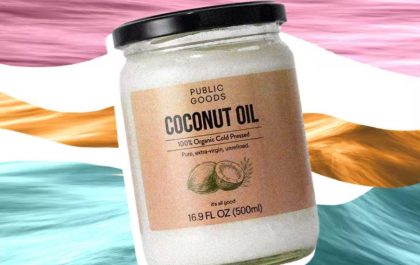Table of Contents
Describe Metabolism
Metabolism – The term “metabolism” describes the chemical (metabolic) reactions when the body transforms food and liquids into energy. It is a complex process that combines calories and oxygen to create and release energy. This energy fuels bodily functions.
What Is Metabolism For?
Even when the body is resting, the metabolism does not stop. It provides continuous energy for essential bodily functions, such as:
- Circulating blood.
- Digestion of food.
- Cell growth and repair.
- Hormonal level management.
- Temperature control.
What Differentiates a Fast From a Sluggish Metabolism?
People with a fast metabolism or BMR burn many calories even at rest. Conversely, if your metabolism is slow or your BMR is slow, your body needs fewer calories to maintain it.
A fast metabolism does not necessarily lead to weight loss. However, studies have shown that overweight/obese people often metabolize faster. This results from their bodies requiring more energy to sustain basic physiological operations.
Also read : Everything You Should Know About Ombre Hair Extensions
How Does Your Metabolism Affect Your Health?
All the chemical processes that keep the organism alive and functioning are collectively called metabolism.
Your metabolism also converts the nutrients in the food you ingest into fuel. As a result, the body needs the energy to breathe, move, digest food, circulate blood, and heal damaged tissues and cells.
However, basal metabolic rate or the number of calories burnt while at rest is commonly referred to as “metabolism.”
Here are nine simple methods to increase your metabolism –
There are several simple and effective ways to improve your metabolism, most of which are simple changes to your diet and lifestyle.
1. Consume Enough Protein At Each Meal.
Your metabolism may momentarily boost after eating for several hours. This is called the thermic effect (TEF) of food. This is due to the extra calories needed to digest, absorb and process the nutrients in your meal.
Protein increases TEF the most. Dietary protein requires 20-30% of available energy to be spent on metabolism, carbohydrates 5-10% and fat 0-3%.
Eating protein has been shown to keep you feeling fuller and prevent overeating.
2. Drink More Water
People who drink water rather than sugary drinks are often more successful at losing and maintaining weight.
This is because sugary beverages include calories, so switching to water instantly reduces your calorie consumption.
However, drinking water can also temporarily speed up your metabolism.
According to a 2013 study, a small study found that drinking 17 ounces (500ml) of water increased your metabolism by 30% while at rest for about an hour.
To support this, additional study is necessary. Water consumption does not always increase metabolism, according to 2015 research.
3. Do High-Intensity Exercises
High-intensity interval training (HIIT) involves fast-paced, high-intensity activity.
If this exercise is safe for you, it can speed up your metabolism and help you lose more weight overall.
This effect is thought to be greater with HIIT than with other types of exercise. HIIT has also been shown to help burn fat.
To start, choose a method you already know, such as cycling or running.
4. Heavy Lift Objects.
Fat is metabolized less than muscle. So by gaining strength, your metabolism will accelerate, allowing you to burn more calories every day—even while at rest.
Lifting weights can also help maintain muscle and prevent the metabolic slowdown that can occur with weight loss.
Additionally, a review of 58 studies found that resistance exercises significantly reduced body fat percentage, total body fat, and belly fat compared to controls.
5. Get Up More
Sitting too much can harm your health.
This is partly because extended sitting results in lower caloric intake and may lead to weight gain.
A 2018 review found that getting up or walking from work reduced cardiac metabolic risk (CMR) scores, body weight, body fat, waist circumference, systolic and diastolic blood pressure, fasting triglycerides, total/HDL cholesterol and insulin. However, walking rather than standing produced more significant improvements in lowering systolic blood pressure and insulin resistance.
6. Drink Green Tea Or Oolong Tea
It has been demonstrated that oolong and green tea speed up metabolism and fat burning.
This tea helps convert some of the fat stored in the body into free fatty acids, which can increase fat burning when used in conjunction with exercise.
Because they are low in calories, drinking these teas can help with weight loss and maintenance.
However, some older studies have shown these teas do not affect metabolism. Therefore, the effect may be weak or only apply to some people.
7. Eat Spicy Foods
Chilli peppers contain capsaicin, a compound that can boost your metabolism.
However, many cannot tolerate these spices in the quantities needed to achieve a significant effect.
For example, a study discussed in a 2016 review evaluated the effectiveness of capsaicin at acceptable doses.
Simply adding spices to food may have minimal effect. However, combining it with other metabolism-boosting strategies may have some benefits.
8. Get A Good Night’s Sleep
Obesity risk is correlated with sleep deprivation.
This may be partly due to the adverse effects of lack of sleep on your metabolism.
Lack of sleep is also associated with increased blood sugar and insulin resistance, which are associated with a higher risk of developing type 2 diabetes.
This may explain why many sleep-deprived people often feel hungry and struggle to lose weight even when weight loss is their goal.
9. Drink Coffee
Caffeine in Coffee has been demonstrated in studies to increase your metabolism temporarily.
Like green tea, it can also promote fat burning. However, if your goal is to lose weight, several studies have shown that Coffee’s effects on metabolism and fat burning can aid in successful weight loss and maintenance.
However, the effectiveness of caffeine may depend on several factors. For example, one study found that caffeine was more effective at increasing fat burning during exercise in people with a less active (sitting) lifestyle than trained athletes.
10. Get Some Caffeine
The caffeine in green tea and Coffee can slightly increase energy expenditure. However, a recent analysis suggests caffeine may promote weight and body fat loss.
If you only concentrate on reducing your coffee intake, you won’t lose much weight.
However, drinking Coffee also has other health benefits. For example, coffee drinkers have a more diverse gut microbiota, lowering obesity and chronic disease risk.
Conclusion
Making small lifestyle changes and incorporating these tips into your daily routine can help boost your metabolism.
There’s no easy answer to boosting your metabolism or burning more calories. But try these seven tips, and you’ll find the one that works best for you.
A high metabolism can help you lose weight and lose weight, and if that’s your goal, you’ll get more energy.
Also read : What Are Macronutrients? What Are The Three main Types
Related posts
Featured Posts
How to Make Coconut Oil for Hair? – Knows, Benefits, Risks, And More
Coconut Oil for Hair – Need to Know About Using Coconut Oil for Your Hair coconut oil for hair may…
These are the Top Vitamins for Hair Loss
These are the Top Vitamins for Hair Loss – Vitamins play a vital role in the functioning of the body….


